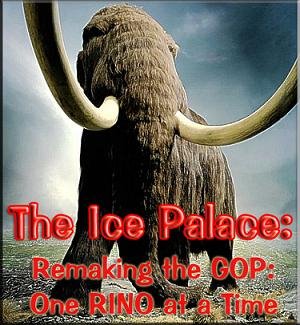Charley Rangel and Grover Norquista tale of two wrongs?
Okayyy.. from Cybercast News:
New York Democratic Congressman Charles Rangel Friday responded to suggestions that the federal income tax be gradually replaced with some form of consumption tax, saying that equal taxation is unfair.
Federal Reserve Chairman Alan Greenspan told the President's Advisory Panel on Tax Reform Thursday that the current U.S. tax code is so complicated as to be a drain on the economy.
"A simpler tax code would reduce the considerable resources devoted to complying with current tax laws," Greenspan said, "and the freed-up resources could be used for more productive purposes."
Rangel responded that any tax of that nature, such as a national sales tax, would be an injustice.
"When you have a tax, where you pay the same tax whether you're wealthy or you're poor," Rangel said, "that's not fair."
Rangel's response to the idea that all Americans would pay the same percentage of their income in taxes, commonly referred to as a flat tax, or that Americans would be taxed based on an equal percentage of what they spend, rather than what they earn, a consumption tax, was broadcast on CBS Radio news Friday morning.
The "class warfare" mentality so apparent on the left has officially become comical. The democrat belief of a birthright of "equal outcome" being gleaned off of the "pursuit of happiness" phrase has become so inane so as to become a cariacature of itself.
There are others who do display a little more savvy:
Grover Norquist, president of the conservative group Americans for Tax Reform, told the Cybercast News Service that, "Rangel is wrong. The only fair taxation is to treat all people equally.
"We do not have two prices of bread - one for the poor and one for those who earn more. All goods and services have one price for all Americans," Norquist said. "Government should be the same. We should all pay the same price (tax) for government."
Unfortunately, both of these souls are missing something. First, Mr. Rangel thinks that our current tax system is right (that we should forcibly confiscate from the rich to subsidize the poor). Second, although Mr. Norquist rightfully does not subscribe to that philosophy, in his example he forgets that there actually are two prices for bread. The initial price that both the poor and the rich pay at the store, and the extra price that the rich pay via confiscatory taxes that is then given to the poor (after going through a bureaucratic filter, of course). Thus, the way things now work, in the end, the poor do indeed pay less for their bread. In our current system as it is, you're going to have to come up with a better example than that, Mr. Norquist.















|